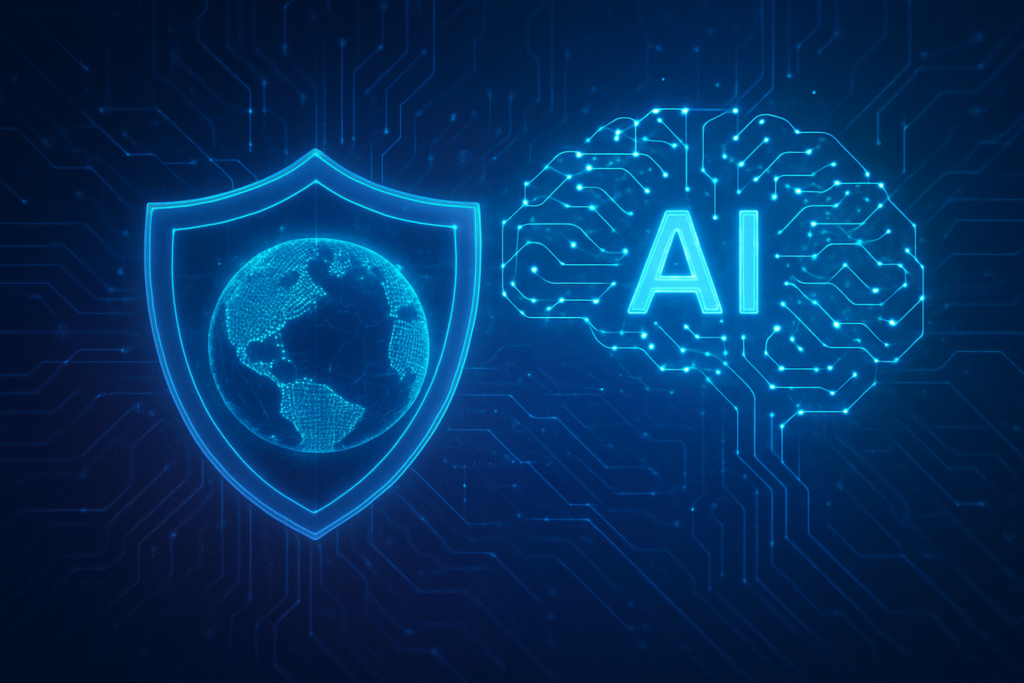
Purdue University has emerged as a pivotal force in fortifying national security technology, leveraging cutting-edge advancements in artificial intelligence to address some of the nation's most pressing defense and cybersecurity challenges. Through a robust portfolio of academic research, groundbreaking innovation, and strategic partnerships, Purdue is actively shaping the future of defense capabilities, from securing complex software supply chains to developing resilient autonomous systems and pioneering next-generation AI hardware. These contributions are not merely theoretical; they represent tangible advancements designed to provide proactive identification and mitigation of risks, enhance the nation's ability to defend against evolving cyber threats, and strengthen the integrity and operational capabilities of vital defense technologies.
The immediate significance of Purdue's concentrated efforts lies in their direct impact on national resilience and strategic advantage. By integrating AI into critical areas such as cybersecurity, cyber-physical systems, and trusted autonomous operations, the university is delivering advanced tools and methodologies that promise to safeguard national infrastructure, protect sensitive data, and empower defense personnel with more reliable and intelligent systems. As the global landscape of threats continues to evolve, Purdue's AI-driven initiatives are providing a crucial technological edge, ensuring the nation remains at the forefront of defense innovation and preparedness.
Pioneering AI-Driven Defense: From Secure Software to Autonomous Resilience
Purdue's technical contributions to national security are both broad and deeply specialized, showcasing a multi-faceted approach to integrating AI across various defense domains. A cornerstone of this effort is the SecureChain Project, a leading initiative selected for the National AI Research Resource (NAIRR) Pilot. This project is developing a sophisticated, large-scale knowledge graph that meticulously maps over 10.5 million software components and 440,000 vulnerabilities across diverse programming languages. Utilizing AI, SecureChain provides real-time risk assessments to developers, companies, and government entities, enabling the early resolution of potential issues and fostering the creation of more trustworthy software. This AI-driven approach significantly differs from previous, often reactive, methods of vulnerability detection by offering a proactive, systemic view of the software supply chain. Initial reactions from the AI research community highlight SecureChain's potential as a national resource for advancing cybersecurity research and innovation.
Further bolstering cyber defense, Purdue is a key contributor to the Institute for Agent-based Cyber Threat Intelligence and OperatioN (ACTION), a $20 million, five-year project funded by the National Science Foundation. ACTION aims to embed continuous learning and reasoning capabilities of AI into cybersecurity frameworks to combat increasingly sophisticated cyberattacks, including malware, ransomware, and zero-day exploits. Purdue's expertise in cyber-physical security, knowledge discovery, and human-AI agent collaboration is critical to developing intelligent, reasoning AI agents capable of real-time threat assessment, detection, attribution, and response. This represents a significant leap from traditional signature-based detection, moving towards adaptive, AI-driven defense mechanisms that can learn and evolve with threats.
Beyond cybersecurity, Purdue is enhancing the resilience of critical defense hardware through projects like the FIREFLY Project, a $6.5 million initiative sponsored by the Defense Advanced Research Agency (DARPA). This multidisciplinary research leverages AI to model, simulate, and analyze complex cyber-physical systems, such as military drones, thereby enhancing their resilience and improving analytical processes. Similarly, in partnership with Princeton University and funded by the Army Research Laboratory's Army Artificial Intelligence Institute (A2I2) with up to $3.7 million over five years, Purdue leads research focused on securing the machine learning algorithms of autonomous systems, like drones, from adversarial manipulation. This project also seeks to develop "interpretable" machine learning algorithms to build trust between warfighters and autonomous machines, a crucial step for the widespread adoption of AI in battlefield applications. These efforts represent a shift from merely deploying autonomous systems to ensuring their inherent trustworthiness and robustness against sophisticated attacks.
Reshaping the AI Landscape: Opportunities and Competitive Shifts
Purdue University's significant contributions to national security technology, particularly in AI, are poised to have a profound impact on AI companies, tech giants, and startups alike. Companies specializing in cybersecurity, AI hardware, and autonomous systems stand to benefit immensely from the research and technologies emerging from Purdue. Firms like Palantir Technologies (NYSE: PLTR), which focuses on data integration and AI for defense and intelligence, could find new avenues for collaboration and product enhancement by incorporating Purdue's advancements in secure software supply chains and agent-based cyber threat intelligence. Similarly, defense contractors and aerospace giants such as Lockheed Martin Corporation (NYSE: LMT) and Raytheon Technologies Corporation (NYSE: RTX), which are heavily invested in autonomous platforms and cyber-physical systems, will find direct applications for Purdue's work in securing AI algorithms and enhancing system resilience.
The competitive implications for major AI labs and tech companies are substantial. Purdue's focus on "Trusted AI" and "interpretable" machine learning, particularly in defense contexts, sets a new standard for reliability and explainability that other AI developers will need to meet. Companies developing AI models for critical infrastructure or sensitive applications will likely need to adopt similar rigorous approaches to ensure their systems are verifiable and resistant to adversarial attacks. This could lead to a shift in market positioning, favoring those companies that can demonstrate robust security and trustworthiness in their AI offerings.
Potential disruption to existing products or services is also on the horizon. For instance, Purdue's SecureChain project, by providing real-time, AI-driven risk assessments across the software supply chain, could disrupt traditional, more manual software auditing and vulnerability assessment services. Companies offering such services will need to integrate advanced AI capabilities or risk being outpaced. Furthermore, the advancements in AI hardware, such as the Purdue-led CHEETA project aiming to accelerate AI hardware innovation with magnetic random-access memory, could lead to more energy-efficient and faster AI processing units. This would provide a strategic advantage to companies that can quickly integrate these new hardware paradigms, potentially disrupting the current dominance of certain semiconductor manufacturers. Market positioning will increasingly depend on the ability to not only develop powerful AI but also to ensure its security, trustworthiness, and efficiency in deployment.
Broader Implications: A New Era of Secure and Trustworthy AI
Purdue's concentrated efforts in national security AI resonate deeply within the broader AI landscape, signaling a pivotal shift towards the development and deployment of secure, resilient, and trustworthy artificial intelligence. These initiatives align perfectly with growing global concerns about AI safety, ethical AI, and the weaponization of AI, pushing the boundaries beyond mere algorithmic performance to encompass robustness against adversarial attacks and verifiable decision-making. The emphasis on "Trusted AI" and "interpretable" machine learning, as seen in collaborations with NSWC Crane and the Army Research Laboratory, directly addresses a critical gap in the current AI development paradigm, where explainability and reliability often lag behind raw computational power.
The impacts of this work are far-reaching. On one hand, it promises to significantly enhance the defensive capabilities of nations, providing advanced tools to counter sophisticated cyber threats, secure critical infrastructure, and ensure the integrity of military operations. On the other hand, it also raises important considerations regarding the dual-use nature of AI technologies. While Purdue's focus is on defense, the methodologies for detecting deepfakes, securing autonomous systems, or identifying software vulnerabilities could, in different contexts, be applied in ways that necessitate careful ethical oversight and policy development. Potential concerns include the arms race implications of advanced AI defense, the need for robust international norms, and the careful balance between national security and individual privacy as AI systems become more pervasive.
Comparing these advancements to previous AI milestones reveals a maturation of the field. Early AI breakthroughs focused on achieving human-level performance in specific tasks (e.g., chess, Go, image recognition). The current wave, exemplified by Purdue's work, is about integrating AI into complex, real-world, high-stakes environments where security, trust, and resilience are paramount. It's a move from "can AI do it?" to "can AI do it safely and reliably when lives and national interests are on the line?" This focus on the practical and secure deployment of AI in critical sectors marks a significant evolution in the AI journey, setting a new benchmark for what constitutes a truly impactful AI breakthrough.
The Horizon: Anticipating Future Developments and Addressing Challenges
The trajectory of Purdue University's contributions to national security AI suggests a future rich with transformative developments. In the near term, we can expect to see further integration of AI-driven tools like SecureChain into government and defense supply chains, leading to a measurable reduction in software vulnerabilities and an increase in supply chain transparency. The research from the Institute for Agent-based Cyber Threat Intelligence and OperatioN (ACTION) is likely to yield more sophisticated, autonomous cyber defense agents capable of real-time threat neutralization and adaptive response against zero-day exploits. Furthermore, advancements in "physical AI" from the DEPSCoR grants will probably translate into more robust and intelligent sensor systems and decision-making platforms for diverse defense applications.
Looking further ahead, the long-term developments will likely center on fully autonomous, trusted defense systems where human-AI collaboration is seamless and intuitive. The interpretability research for autonomous drones, for example, will be crucial in fostering profound trust between warfighters and intelligent machines, potentially leading to more sophisticated and coordinated human-AI teams in complex operational environments. The CHEETA project's focus on AI hardware innovation could eventually lead to a new generation of energy-efficient, high-performance AI processors that enable the deployment of advanced AI capabilities directly at the edge, revolutionizing battlefield analytics and real-time decision-making.
However, several challenges need to be addressed. The continuous evolution of adversarial AI techniques demands equally dynamic defensive measures, requiring constant research and adaptation. The development of ethical guidelines and regulatory frameworks for the deployment of advanced AI in national security contexts will also be paramount to ensure responsible innovation. Furthermore, workforce development remains a critical challenge; as AI technologies become more complex, there is an increasing need for interdisciplinary experts who understand both AI and national security domains. Experts predict that the next phase of AI development will be defined not just by technological breakthroughs, but by the successful navigation of these ethical, regulatory, and human capital challenges, making "trusted AI" a cornerstone of future defense strategies.
A New Benchmark for National Security in the Age of AI
Purdue University's comprehensive and multi-faceted approach to integrating AI into national security technology marks a significant milestone in the ongoing evolution of artificial intelligence. The key takeaways from their extensive research and development include the critical importance of secure software supply chains, the necessity of agent-based, continuously learning cyber defense systems, the imperative for trusted and interpretable autonomous systems, and the foundational role of advanced AI hardware. These efforts collectively establish a new benchmark for how academic institutions can directly contribute to national defense by pioneering technologies that are not only powerful but also inherently secure, resilient, and trustworthy.
The significance of this development in AI history cannot be overstated. It represents a maturation of the field, moving beyond theoretical advancements to practical, high-stakes applications where the reliability and ethical implications of AI are paramount. Purdue's work highlights a critical shift towards an era where AI is not just a tool for efficiency but a strategic asset for national security, demanding rigorous standards of trustworthiness and explainability. This focus on "Trusted AI" is likely to influence AI development across all sectors, setting a precedent for responsible innovation.
In the coming weeks and months, it will be crucial to watch for the further integration of Purdue's AI-driven solutions into government and defense operations, particularly the real-world impact of projects like SecureChain and the advancements in autonomous system security. Continued partnerships with entities like NSWC Crane and the Army Research Laboratory will also be key indicators of how quickly these innovations translate into deployable capabilities. Purdue University's proactive stance ensures that as the world grapples with increasingly sophisticated threats, the nation will be equipped with an AI-powered shield, built on a foundation of cutting-edge research and unwavering commitment to security.
This content is intended for informational purposes only and represents analysis of current AI developments.
TokenRing AI delivers enterprise-grade solutions for multi-agent AI workflow orchestration, AI-powered development tools, and seamless remote collaboration platforms.
For more information, visit https://www.tokenring.ai/.





